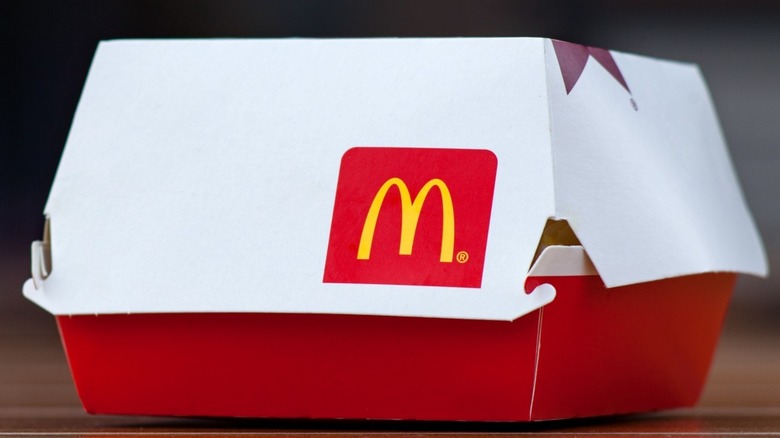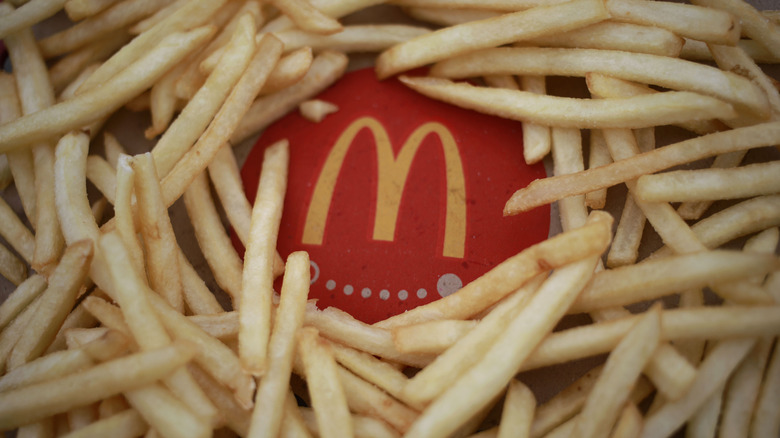A Shortage Of This Seasonal McDonald's Sandwich Could Be Coming
As we have spent more than a year and a half under the conditions of a global pandemic, shortages have become utterly commonplace. The latest potential shortage, however, has nothing to do with the coronavirus and everything to do with bureaucracy. On October 11, 2021, the Associated Press reported that the United States Customs and Border Protection (CBP) charged the shippers of Alaskan pollock with a fine of $350 million for violating the Jones Act. Although the issue appears to be on the path to resolution, 26 million pounds of fish were stuck in cold storage.
The Counter explains that the Jones Act requires all domestically shipped goods to be shipped on American-owned, American-made, and American-staffed vessels. However, an exception is made if the trip involves travel over a Canadian railway and "connecting water facilities." So, Alaska pollock is shipped from Alaska to New Brunswick, which is on the East Coast. Once there, the fish is unloaded and then loaded onto trucks that are put onto a train. The train moves 100 feet, the trucks disembark, and they deliver the goods into Maine. This process allows companies to use foreign ships for transport.
Must Read Alaska explains that 90 percent of all fish unloaded in New Brunswick enters the United States by the method described above. Unfortunately, the CBP does not believe 100 feet constitutes enough train travel to warrant an exception.
What does this have to do with McDonald's?
Okay, so we got all of the regulatory stuff out of the way. But what does any of this have to do with McDonald's? The problem is that, according to McDonald's own ingredient list, the Filet-O-Fish is made from pollock. In addition, the Associated Press explains that now is the time that the seafood business prepares itself for its annual Lenten boom, when Catholics across the country fast from red meat and turn to fish. "If we can't get the pollock soon, then we will run out of time and other raw material; causing production lines – and people — to sit idle," said Michael Alexander, president of King and Prince, which supplies the fast food industry with its seafood offerings.
However, as SeafoodSource reported on October 12, a district court in Alaska has ruled to free the millions of pounds of fish held in storage. Still, the fish had been held for over 50 days by that point. So while the industry may manage to pull off a fast-paced turnaround, it is also likely that the beginning of Lent will see a shortage of Filet-O-Fish.

